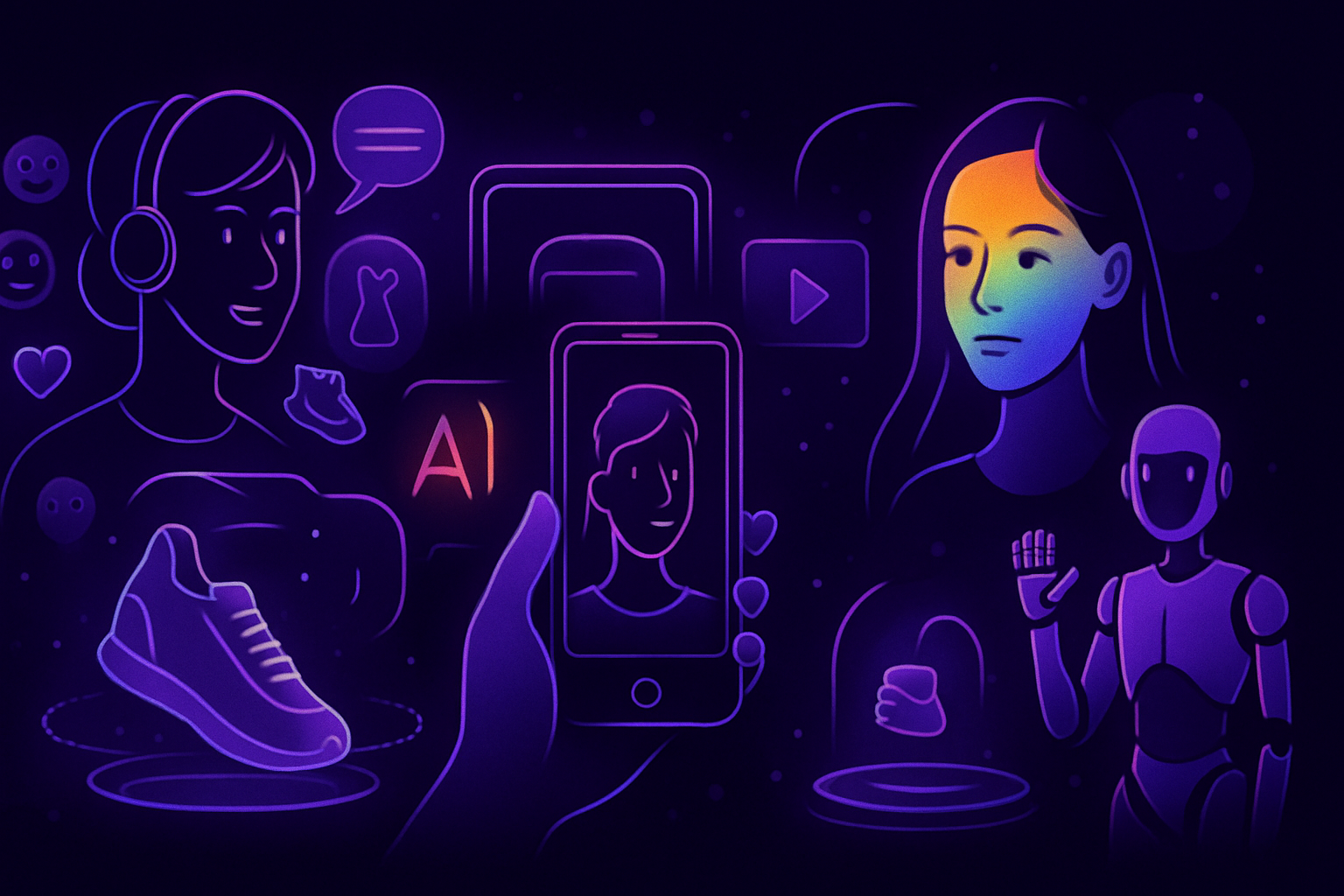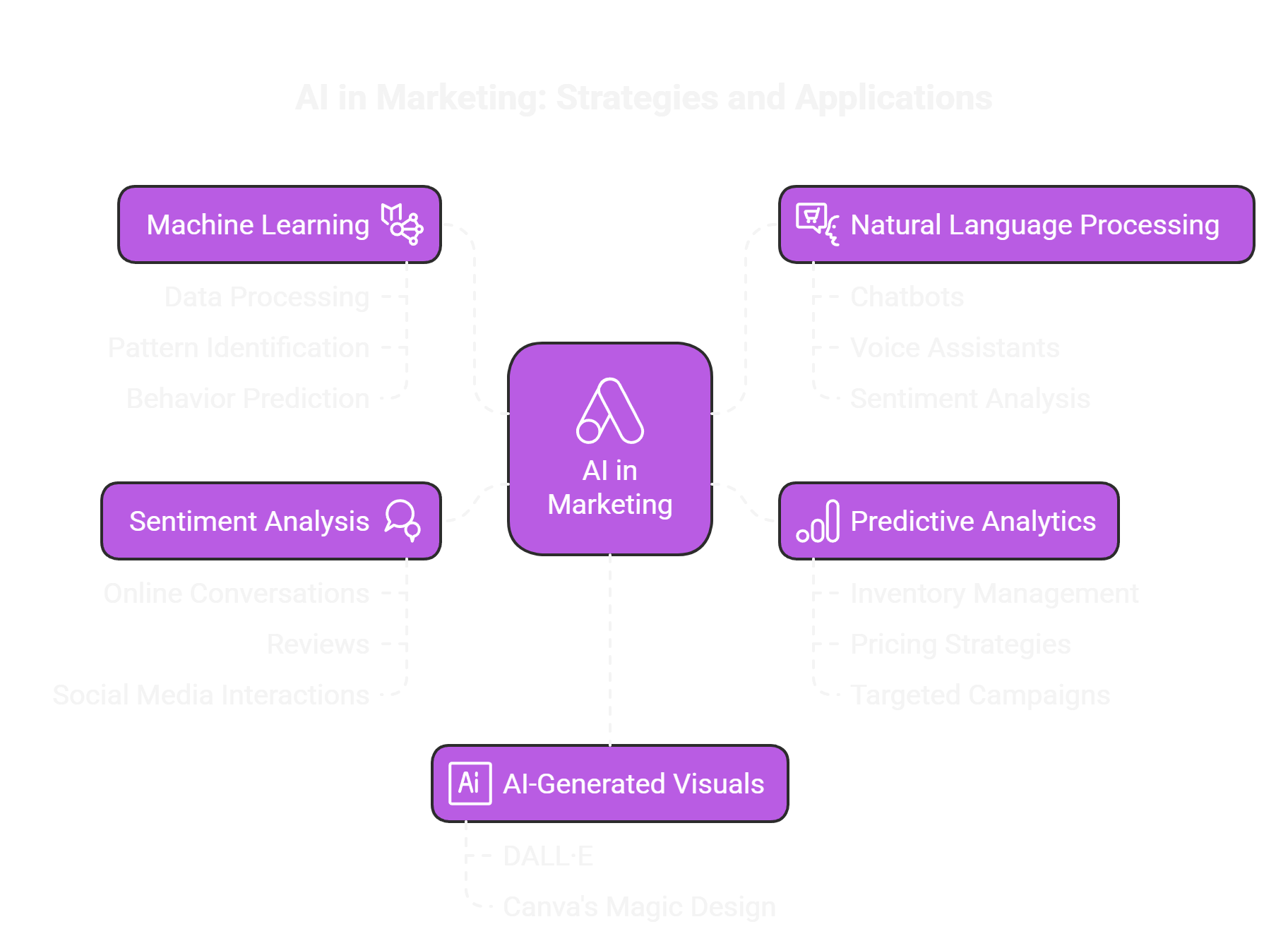
In the past, marketing was about gut feeling, catchy jingles, and hoping the ads didn't end up as bad memes. But things are different now: AI has stepped into the marketing arena and is now a different game. Brands do not even guess anymore about what might work; they run hyper-personalized, data-driven campaigns that somehow read your mind, a minute admire and a minute scare!
Does AI make an intelligence of marketing, or are we just giving away our creativity to the machines? Let's check it out.
Marketing has always been about understanding people: what they want and think and what compels them to hit that "Buy Now" button at 2 AM. However, humans are complicated, admittedly. They change their minds, get distracted, and sometimes do not even know what they want until it is exactly presented to them. Then AI steps in, not in place of human creativity but to amplify it.
AI is becoming the ultimate data interpreter, able to scour through billions of records to identify trends, customize content, and launch campaigns in the blink of an eye. It knows how to analyze customer behavior patterns or predict which marketing strategies best serve them. This is augmentation, not automation.
Therefore, instead of supplanting human marketers, AI is their indispensable assistant and performs all the heavy analysis work so human marketers can focus on strategy and storytelling.
From chatbot assistance with customer inquiries to AI-driven platforms focusing on creating or personalizing ads and email campaigns, artificial intelligence's influence in marketing is certainly present. Those that adopt AI can now laze through the simple act of carrying an advert to its target audience in terms of either time or location, to name a few criteria.
Human creativity complements AI to achieve even greater success, as the collaborative link between AI and human creativity can, after all, work synergistically. AI may be able to generate insights, but it surely takes a human to develop engaging storytelling, connect on an emotional level with the audience, and create messaging that truly resonates with the brand.

Want to know why your ads feel like they know you better than a best friend? AI tracks your behavior, purchases, and even the time spent looking at a product before you scroll away. ML-powered recommendations come to help make each ad, email, or notification feel tailor-made for you. Netflix and Spotify brands have achieved this with their eerily accurate recommendation engines.
Nobody likes to spend 15 minutes on hold to ask if something's available. AI-powered chatbots like Drift and Intercom can answer customer questions right away. They can provide help, suggest products, and even make sales. Moreover, they don't need sleep or coffee to keep going! Businesses using AI support for customers see quicker responses and happier customers.
AI tools like Jasper, Copy.ai, and ChatGPT can create blog posts, ad texts, and tweets. But AI can't match human creativity in making content interesting. That's why smart marketers use AI to help, not replace them. AI makes the first draft, and human imagination makes it better. It adds to the brand's personality, humor, and story. Businesses that use AI to help with human creativity can make more good content faster.
Predicting trends used to be just feelings and guesses. Now, AI-powered predictive analytics can see what customers might do, suggest the best ad times, and guess which leads will probably turn into sales. Tools like Salesforce's Einstein AI and HubSpot's AI analytics are now helping businesses make decisions based on facts to earn real money. Businesses that use AI in marketing can see trends before they become popular.
Remember when ad budgets were just guesses? Now, AI makes sure that every penny is spent well. It does this by testing different ideas, reaching the right people, and improving campaigns as they happen. Platforms like Google Ads and Meta's Advantage+ now make it feel old-fashioned to tweak ads manually. Businesses using AI-boosted ad platforms see more conversions and less money spent on getting new customers.
SEO isn't just about stuffing keywords anymore; AI-driven SEO tools like SurferSEO, Clearscope, and SEMrush analyze search intent, optimize content, and suggest the best keywords to rank higher. Machine Learning guarantees that your content will be adjusted to the constantly changing Google algorithms. Businesses integrating AI in their SEO strategy see increased organic traffic and improved search rankings.
Have you ever received an email that felt eerily specific? AI-powered email marketing tools analyze customer interactions and predict the best times to send emails, personalize subject lines, and draft content. Businesses using AI-driven email campaigns experience higher open rates and engagement levels.
AI in marketing is evolving rapidly, and we're just scratching the surface of its potential. We can expect even more sophisticated applications that redefine the marketing landscape as technology advances.
Hyper-personalized AI agents are set to revolutionize how we shop. Such virtual shopping assistants will offer not only products that were in the past but also be able to identify emotions and recent searches. Imagine an AI that knows exactly what you need before you even search for it.
Voice and conversational AI will dominate brand interactions. With Siri, Alexa, and other assistants becoming smarter, brands must optimize content for voice search. AI-powered voice marketing will enable real-time, natural customer conversations, soon, chatting with a brand will be like texting a friend.

AI-generated video and interactive content will redefine digital marketing. Tools like Synthesia and DeepBrain AI allow brands to create hyper-realistic videos effortlessly. Expect interactive ads, holographic demos, and even AI-generated influencers promoting products in real-time.
Emotion AI (aka affective computing) will help brands connect on a deeper emotional level. By analyzing facial expressions, tone, and social sentiment, AI will guide emotionally resonant campaigns, driving engagement and loyalty while feeling surprisingly human.
AI in the Metaverse is also on the rise. As virtual and AR spaces grow, AI will help brands build personalized storefronts, immersive experiences, and AI brand ambassadors. The way we experience marketing will never be the same.

ML is the backbone of AI marketing. It analyzes massive social datasets to detect patterns and predict consumer behavior. It evolves with time, continuously improving marketing strategies and reducing guesswork.
NLP lets AI understand and respond to human language. This powers better chatbots, voice assistants, and social listening tools. Brands use NLP to understand sentiment across reviews and platforms, tailoring their messages accordingly.
AI tools like DALL·E and Canva’s Magic Design can instantly create striking visuals. Businesses can maintain brand consistency without needing full-time design teams, making professional content creation more accessible.
AI leverages historical data to forecast market trends, customer preferences, and sales patterns. This informs everything from inventory and pricing to messaging strategies, boosting efficiency and results.
AI-driven sentiment analysis monitors online chatter, reviews, and social posts to determine brand perception. This helps companies react to issues quickly, engage supporters, and tweak strategies based on real-time insights.
As AI gets smarter, so does its ability to track user behavior. But when does personalized marketing become surveillance?
Ethical concerns include:
Brands that use AI responsibly, complying with laws like GDPR and clearly communicating their AI use, will build trust. No one wants to feel like they’re living in a Black Mirror episode just for buying sneakers.

Learn why understanding search intent is the secre...

Rebranding your business? Learn how to rebrand the...

Discover how the timeless AIDA marketing model: At...